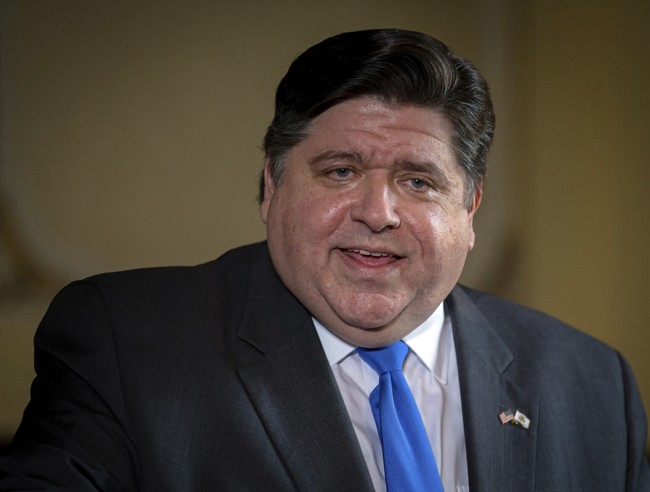
Where Recovery Should Have Started
This January's Pacific Palisades fire wasn't simply a nibble along a hillside; it tore through neighborhoods in minutes, leaving charred foundations, scorched palms, and thousands of families stripped of their most basic human anchor. Homes, routines, schools, and familiar landmarks vanished under a sky that glowed the color of molten iron.
Advertisement
Nearly a year later, any hopes of a complete recovery remain stuck in the mud; over 70% of fire victims still live in temporary housing, pointing to a breakdown that should stun and humiliate any functioning government.
These families represent some of the most stable zip codes in California; they weren't drifting before the flames. These people include teachers, restaurant owners, small business operators, and retirees who built their lives with care and now wait for leaders who claim compassion while producing little more than podium speeches.
The Human Toll That Never Makes Headlines
Displacement isn't something that quickly happens. It crushes a person slowly, weakening routines and relationships, forcing families to choose between staying in their communities or moving to affordable housing miles away. Residents in the region, surveys say, are cutting back on groceries, skipping needed medical care, and draining savings.
California residents were dealt two separate, but equally devastating blows: the first from the fire, and the second from the bloated bureaucracy that claims to help.
Just like you'd think, the bureaucrats' aim was delivered with precision.
The Leadership Failure That Made Everything Worse
I hate to say this, but this sounds so blatantly cliché that it's hard to write: California's Democratic leadership treated the fire like an opportunity to test various communication methods rather than a mandate for action.
Advertisement
Los Angeles County politicians made a parade of early press conferences, standing amid the rubble to talk about resilience while promising streamlined permitting and accelerated inspections.
Remember the Road Runner cartoons, specifically the cloudy whirl when it rocketed off, away from old Wile? The local pols walked away from their own words, using that same cloudy whirl.
Soon, efforts began moving more slowly than molasses in wintertime: Debris clearing started late, hazard assessments lagged, zoning offices moved at a snail's pace, and homeowners waited for permits that arrived months after promised deadlines.
Officials injured their fingers' tendons while pointing the blame at contractors, environmental reviews, and, finally, the disaster's scale.
Despite all that, residents knew the truth: the delays came from the same Democratic leadership that claims California leads the nation in environmental responsibility, disaster readiness, and moral virtue. On each front, the state failed: it couldn't lead, protect, rebuild, or deliver what it promised.
Not wanting to fall behind, Sacramento's behavior was even worse; the governor toured the ruins with cameras in tow, then pivoted to national messaging, leaving the agencies responsible for recovery to trip over themselves.
Reports, task forces, and advisory councils created by state leaders didn't build a single home or restore a kitchen, a bedroom, or a hallway lined with family photographs.
Advertisement
Communities survive wildfires, but working hard to survive a government that refuses to act is much harder.
Where the Money Went, Nobody Knows
Although we would never know it, California spends billions on wildfire mitigation, climate resilience, and emergency readiness. Not a single penny ever reached the people who needed them, despite investigators raising alarms over unused funds and questionable allocations.
Palisades residents saw the unvarnished truth that state officials avoided like the plague. When a suit or blouse talks endlessly about climate strategy, but can't help families who've already lost everything, the strategy becomes nothing more than performance, not policy.
The Moral Weight
More than a shelter, a home is a boundary line between chaos and order. When families lose it, the state has a moral obligation to quickly act.
It was a test that California failed miserably.
Authentic leadership requires humility, discomfort, and the willingness to say, "We didn't know," and to act quickly. Democratic officials responsible for the Palisades recovery weren't able to do this while discussing systemic challenges and environmental complexities.
A fire destroyed homes.
A government destroyed time.
The one thing families can't rebuild? Time.
Final Thoughts
Over seven out of ten victims of the Palisades fire remain without permanent homes. This number needs to embarrass every official in Los Angeles County and Sacramento as they drive home to their intact, safe homes.
Advertisement
Instead, the state decided to follow the playbook of idiots, treating the fire like another abstract data point, folded to fit into a press conference.
Remember Ronald Reagan's nine words?
California told the nation it was prepared and the world it could handle any natural disaster. Yet the state can't even rebuild the homes that have already been lost.
Exposing a truth that Democrats desperately worked hard to hide, the fire showed that Democrats are great at managing optics but terrible at managing outcomes.
Disasters demand competence California delivered commentary.
Families deserve far better.
If you value reporting that holds leaders accountable and treats families with dignity, join PJ Media VIP and get the deeper analysis the corporate press avoids. You gain access to my full columns, the insider conversations, and the stories that cut through the noise.











